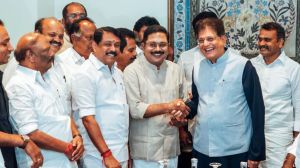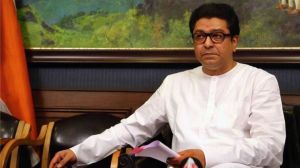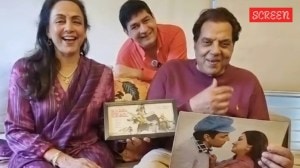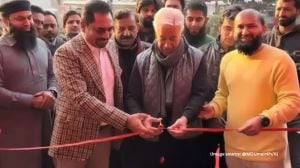Cheating death?
When it comes to dying, the majority of us are notoriously ill-informed

Recently we had heard of members of the Jain community, one suffering from a serious illness and the other, a victim of old age, choosing to take their deaths into their own hands by refusing to eat and drink. This has in some quarters been equated with suicide or with euthanasia, both of which are criminal offences under the law. How correct is this interpretation?
I think at the outset there is a need to distinguish between the right of an individual to die naturally and with dignity and the demand for an unnatural termination of life. Allowing death to follow its natural course and actively seeking to preempt it are two different things. While the latter is euthanasia, the former is not. There is still another misconception that we need to address: that not forcing food/ fluids on a dying patient deprives her of nourishment and is a covert form of euthanasia.
This in fact may be the kindest thing that one can do for a person who is dying and whose organs are no longer capable of performing their functions properly. In the case of end stage cancer, for example, studies have shown that physical changes occur in the body so that no discomfort is felt even when the person is no longer eating or drinking. Starvation and dehydration are not issues any more. The person who is dying has moved beyond them.
There is a need to understand that the physiology and needs of the dying are distinct from those of the living. Decisions that will affect their welfare, therefore, are best taken in consultation with professionals who work in palliative or end-of-life care. It is a matter of concern that physicians in India do not have any professional guidelines, beyond the Hippocratic oath, when it comes to taking decisions pertaining to end-of-life care as they are not taught palliative care. It becomes a question of whether 8220;to resuscitate or not to resuscitate8221; and nothing else.
From our experience at CanSupport in running a home-based palliative care programme for people with advanced cancer for a decade, we have found that when it comes to dying, the majority of us are notoriously ill informed. It is a subject we prefer to avoid discussing. However, if we wish to be effective care givers and do not want our loved ones to suffer unnecessarily, we have an obligation to be better informed.
The current debate on end-of-life issues in India will hopefully become more enlightened. It cannot be left as a dialogue between medical professionals and the judiciary. How can death be legislated upon without considering the needs of the person who is dying, the family and the wider community? The decision to try futile interventions that will bring no benefit to the patient and will only add to suffering cannot be countenanced any more than a decision to administer a lethal injection to a patient in the name of ending suffering.
The writer is president, CanSupport
- 013 hours ago
- 0214 hours ago
- 0316 hours ago
- 0416 hours ago
- 0516 hours ago































